This species has been observed on Reunion, Mayotte and Madagascar Islands
Species characteristics : This seaslug has large compound tubercles with conical tubercles arrayed all over the surface The underside of the mantle, which has a dark brown background colour with large round white spots. (see photo below) |

|
|
| Showing species characteristics... | Photo Philibert Bidgrain Mayotte, mtsanga Tanaraki, on the reef flat zone, 31 December 2011, size : 90 mm |
|
The underside of the mantle (a) of this seaslug, which has a dark brown background colour with large round white spots
Large compound tubercles (b) with conical tubercles arrayed all over the surface The lamellated rhinophores (c) |
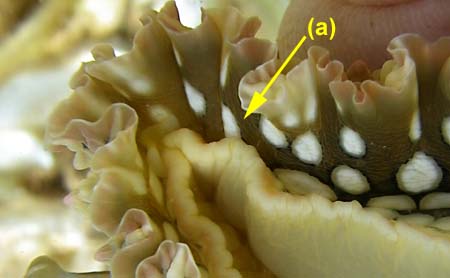 |
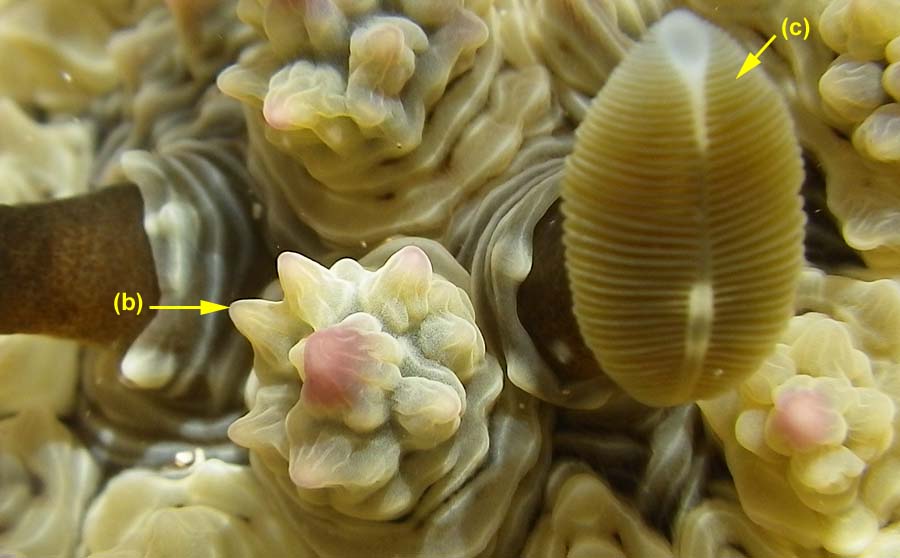 |
|
Remarks :
Identification confirmed by Bill Rudman and Nathalie Yonow
Synonymous : (according Worms)
- Doridopsis tuberculosa (Quoy & Gaimard, 1832)
- Doris tuberculosa Quoy & Gaimard, 183
Bibliographic data :
This large, strongly tuberculate seaslug is easily identified by the colour of the underside of the mantle, which has a background colour ranging from pale greenish or yellowish brown to dark brown with large round white spots.
The whole of the mantle is covered with tubercles. Usually these are simple rounded cones but scattered amongst them are large compound tubercles with conical tubercles arrayed all over the surface of the central projection.
D. tuberculosa appears to be closest to D. carbunculosa but :
The whole of the mantle is covered with tubercles. Usually these are simple rounded cones but scattered amongst them are large compound tubercles with conical tubercles.
The underside of the mantle, has a background colour ranging from pale greenish or yellowish brown to dark brown with large round white spots.
Large individual tubercules separated by smooth sections of the mantle. Each large tubercle is surrounded by a ring of small semispherical bumps
The underside of the mantle is a uniform brown or reddish brown, sometimes with darker diffuse patches
References :
Bill Rudman Seaslug site : Sea Slug Forum : Dendrodoris tuberculosa
Nudipixel Dendrodoris tuberculosa
Publications :
Quoy, J.R. & Gaimard, J.P. (1832). Voyages de découvertes de l`Astrolabe pendant les annees 1826-1829 sous le commandement de M.J. Dumont d`Urville. Zoologie, 2 : 1-686.
Valdés Á. & Gosliner T.M. (1999). Phylogeny of the radula-less dorids (Mollusca, Nudibranchia), with the description of a new genus and a new family.. Zoologica Scripta 28 : 315-360.
Yonow, N. Anderson, C. and Buttress, S. G. (2002). Opistobranch molluscs from the Chagos Archipelado, Central Indian Ocean. Journal of Natural History, 36, 831-882
Other photos of Dendrodoris tuberculosa :
Barbara Bini Madagascar, Nosy bé, 8 m, December 2017, size : 100 mm |
|
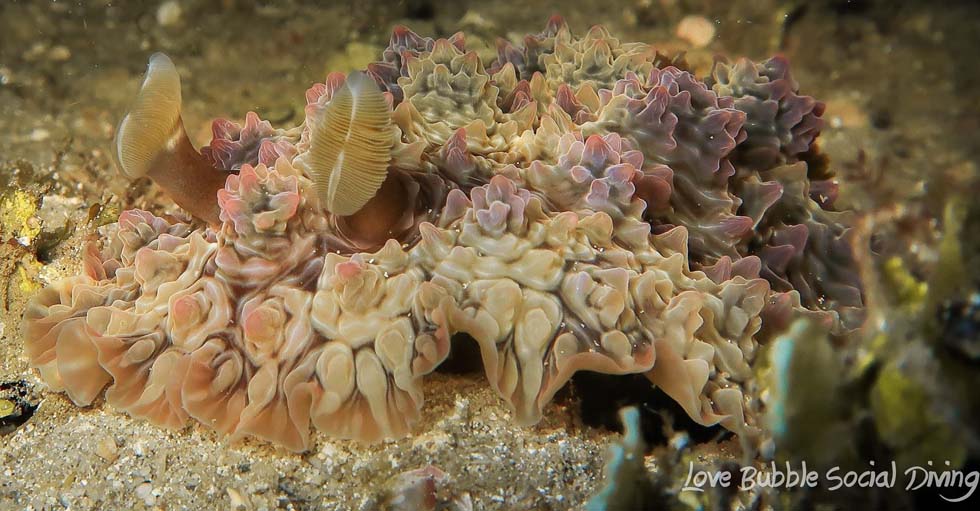 |
|
Painting on the right Plate 16, Figs 1,2. From Quoy & Gaimard, 1832. These paintings show the white or pale spots on the underside of the mantle and the arrangement of pustules (
somewhat diagrammatic
) on the dorsal surface. |
 |
|
 |
||
Painting on the left 2 paintings by Walter Elliot of "Doris tuberculosa" , [no 29] from Waltair, India, April 1854. Used by Alder & Hancock, 1864. Paintings held in the Hancock Museum, Newcastle - upon - Tyne, UK. The Walter Elliot painting clearly shows that between the main tubercles there are secondary tubercles and no flattened non-tuberculate patches. |
||
Maurice Jay Reunion, "Grand Fond" lagoon at Saint Paul,16 March 1985, size : 80 mm x 60mm Large compound tubercles (a) with conical tubercles arrayed all over the surface The underside of the mantle of this seaslug, which has a dark brown background colour with large round white spots (b) |
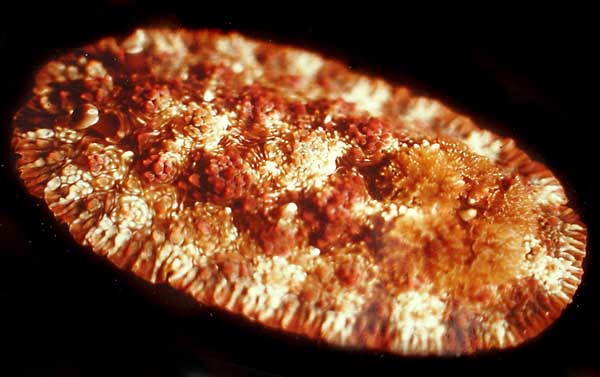 |
 |
 |
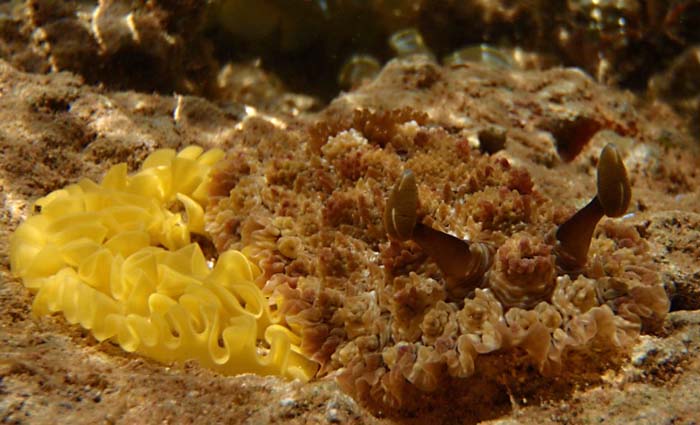 |
Sébastien Bascoulès Mayotte, Chissioua Sada, on the reef flat zone, less 1 m, 12 September 2010, size : 100 mm Probably with its spawn... 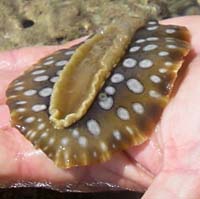 |
Photo Olivier Police Mayotte, mtsanga Sakouli, on the reef flat zone, 5 January 2010, size : 80 mm  |
 |
More photos from Indian Ocean